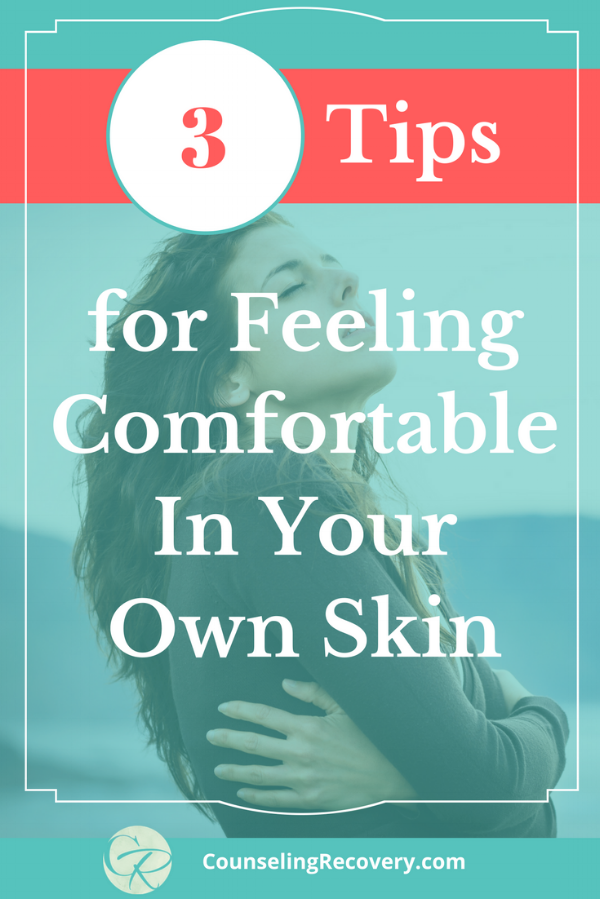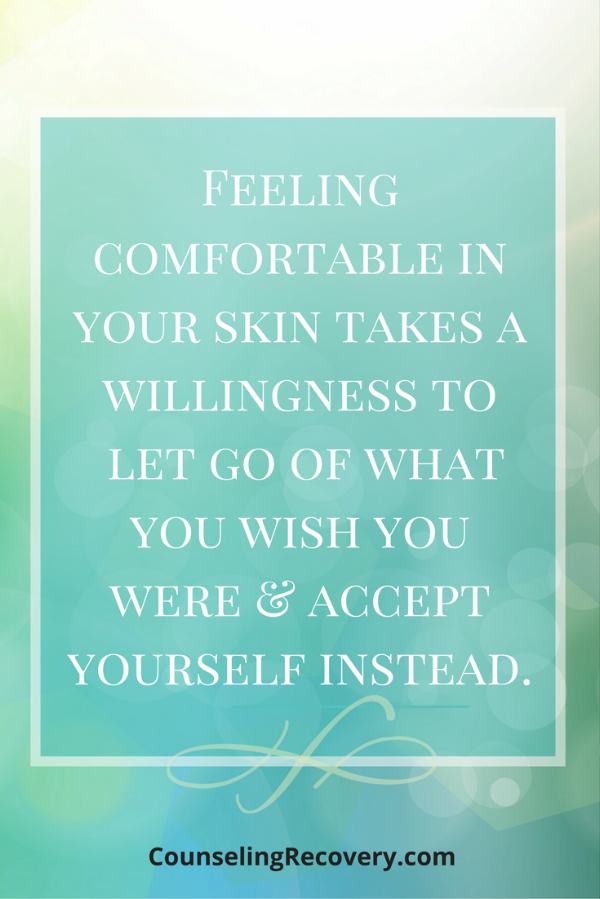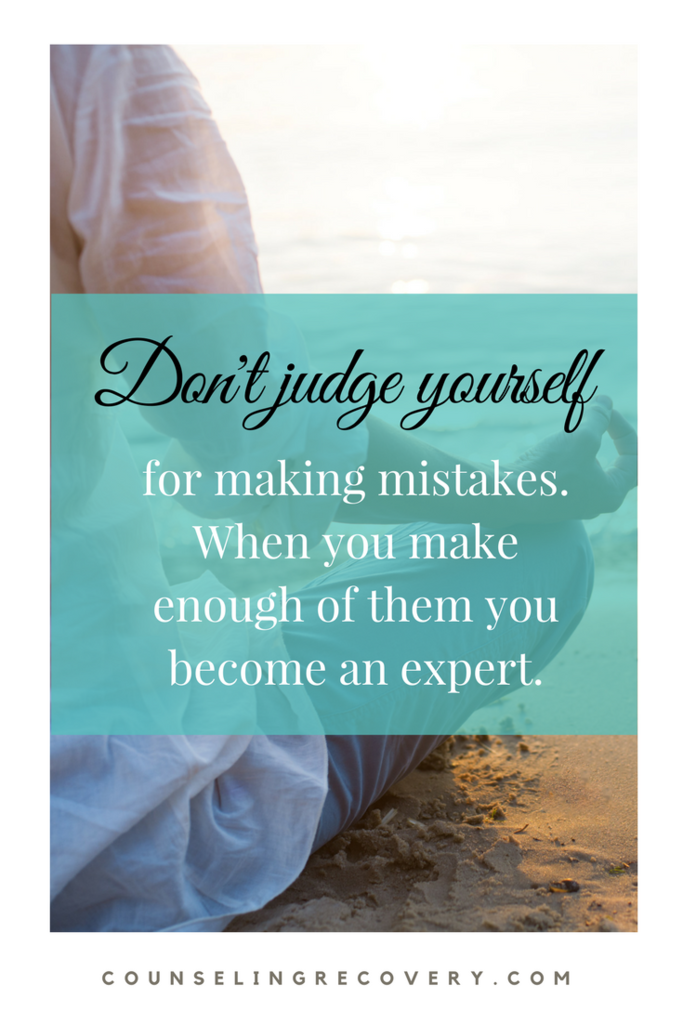3 Tips For Feeling Comfortable In Your Own Skin
You have a right to feel comfortable in your body.
When someone asks how you feel and you hesitate pay attention. Feelings are a real challenge when you aren't connected to your body.
Different issues contribute to this including not learning to trust yourself or painful childhood events that create a negative sense. Living in self-doubt is no way to live.
Identifying old messages that don't belong to you is the first step. Messages like “you're not good enough” or “you should be more like your sibling” takes a toll. Transforming those messages starts the process of feeling more comfortable within yourself.
1. Address The Quality of Your Self-talk
Self-talk is that dialogue that goes on in the back of your mind everyday. How we talk to ourselves begins in childhood with our primary caregivers.
As a child what you hear gets internalized and you believe those messages as the truth. These messages can be critical comments, being compared to others, or verbal abuse. Overtime, they become ingrained in your personality as an adult.
Pay attention to what you tell yourself.
When self-talk is negative it sounds like this:
Why bother, it's not going to work anyway.
I'm fine, I don't need anyone's help.
I should be better, prettier, more capable (whatever applies).
I'm not good enough, smart enough, thin enough, etc.
Nobody wants to hear what I have to say.
My feelings or thoughts aren't interesting so just be quiet.
I don't like my body so I'd rather ignore it.
2. Learn to Recognize Emotions
Feeling comfortable in your own skin
Letting yourself have your feelings is an important part of being comfortable with yourself. If you weren't taught how to deal with them, you might stuff them with food or other substances. Eventually, these feelings leak out and cause problems.
Expressing how you really feel, means standing up for yourself. It's not about making someone else wrong, it's about telling your truth and that's how you honor yourself.
If you don't know how you feel, relationships are tough. You may feel invisible. Here is a quick guide for recognizing feelings in the body:
Fear begins in the stomach.
Sadness shows up in the chest, throat and eyes for tears.
Anger begins in the back, neck and jaw creating tension.
Joy radiates from the chest.
3. Develop Your Intuition
Next, start listening to your inner thoughts. Some call it intuition, that small still voice telling you something is wrong. Do you listen to that voice or dismiss it? Were you taught to ignore it?
Have you ever had a nagging thought to act but ignored it? We all have. Next time you get that feeling, listen to it. Notice if there's a different result. Was the outcome ultimately better for you?
By practicing this, you learn to recognize what your intuition feels like and begin to trust it. This leads to making better decisions.
Clients have told me they knew when something wasn't right but didn't have enough trust in themselves to follow it. Fortunately, there is always another chance to practice it. Practice makes that skill stronger!
Final Thoughts
When you are confused, try sharing with a trusted friend or do some journal writing. Once you get used to embracing your own experience, you will start to develop trust in yourself. There is nothing like the freedom you feel when you're comfortable with yourself. It can change your life in ways you cannot imagine.
Grab my free ebook on building confidence below!



